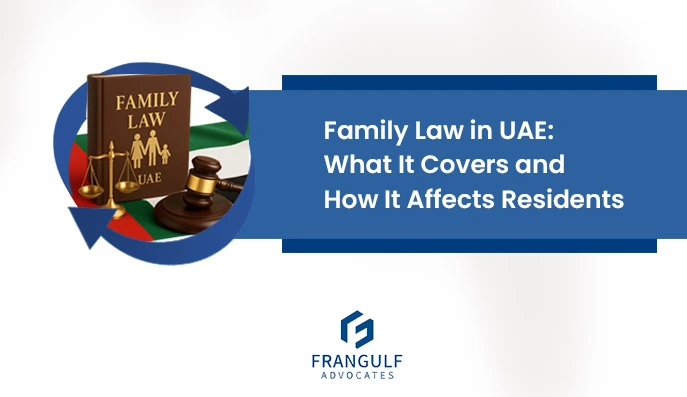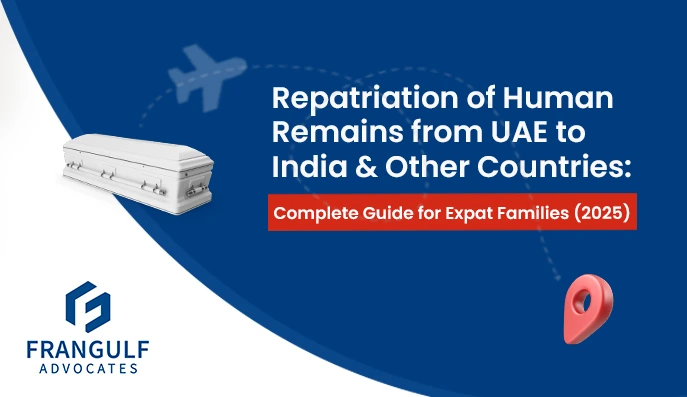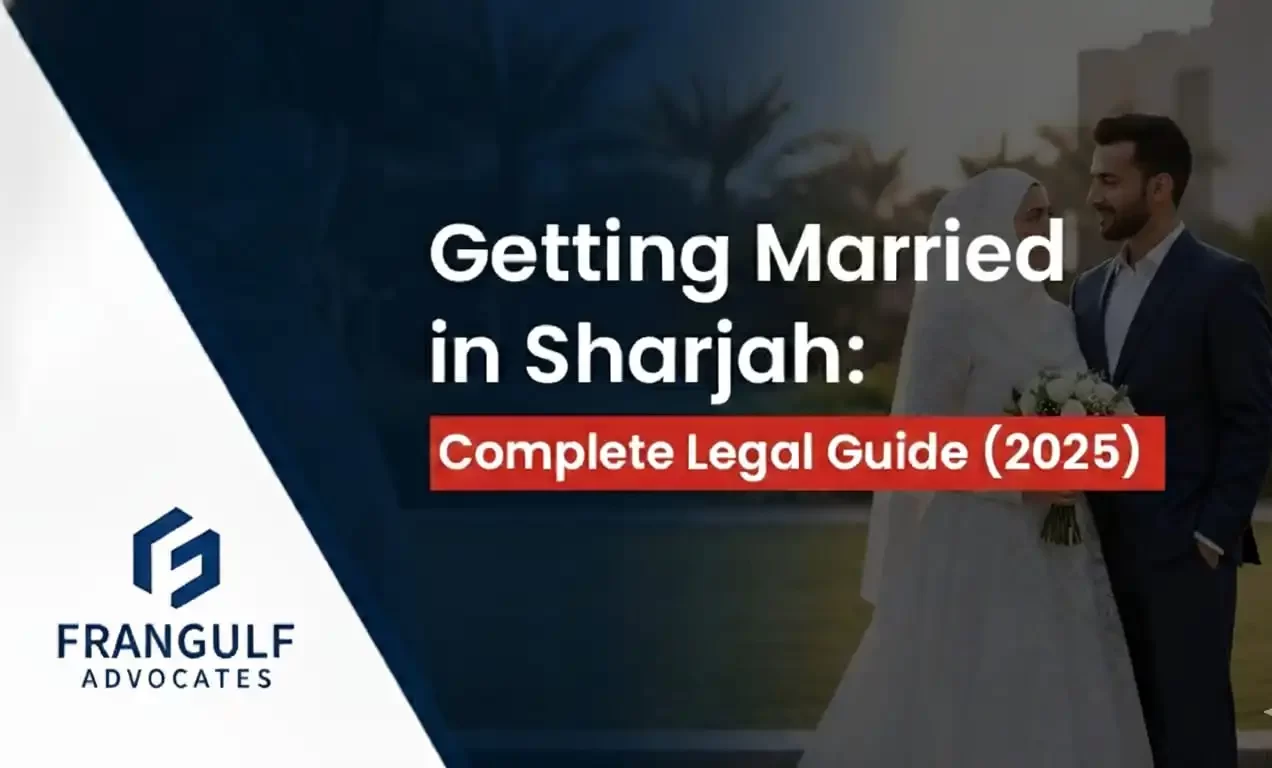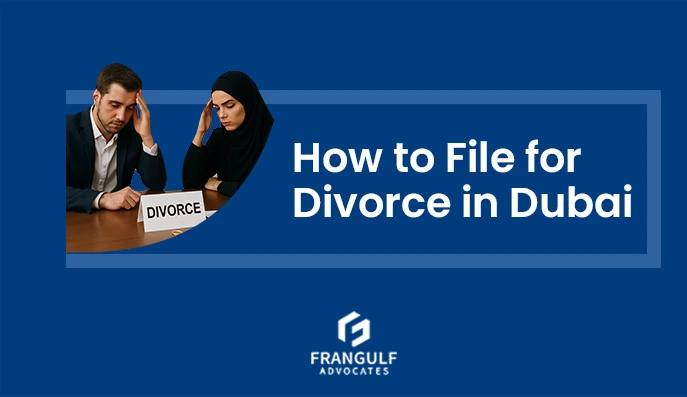Family Law in UAE: What It Covers and How It Affects Residents

Family law plays a pivotal role in shaping and protecting one of society’s most fundamental institutions: the family. It provides the legal structure for highly personal issues such as divorce, marriage preparation, child custody battles, and protection from domestic abuse.
In the UAE, family law offers a distinctive blend of traditional Islamic legal principles and contemporary civil law. This framework comprehensively protects both UAE citizens and the diverse expatriate population. This blog will delve into the primary areas of family law, detail the services provided by family law attorneys, and illustrate how family law operates in the UAE, including recent reforms affecting both Muslim and non-Muslim individuals.
What Is Family Law? Scope and Significance
Family law—also known as domestic relations law or matrimonial law—is a legal practice area that governs relationships within families. It includes everything from the legal aspects of marriage and divorce to child custody, inheritance, and protection from domestic violence.
The scope of family law may vary by country, but generally includes:
- Marriage and civil unions
- Divorce and legal separation
- Child custody and visitation rights
- Adoption and guardianship
- Child and spousal support
- Property and asset division
- Domestic violence protections
- Inheritance and wills
In the UAE, family law expands further to reflect:
- Islamic legal traditions
- Cultural customs
- The country’s large expatriate demographic
This makes family law jurisdiction in the UAE more complex, with different legal frameworks applying based on religion, nationality, and emirate-specific rules. Navigating these intersections requires deep understanding and often specialized legal counsel.
What Areas Does Family Law Cover Globally?
Family law matters are emotional, sensitive, and can significantly impact all parties involved. Here’s a breakdown of the most common legal areas covered under family law globally:
1. Marriage & Civil Unions
Family law defines the legal requirements for marriage:
- Registration procedures
- Age of consent
- Prenuptial agreements
- Recognition of foreign or same-sex marriages (varies by jurisdiction)
2. Divorce & Legal Separation
This area governs how marriages legally end:
- Grounds for divorce (fault or no-fault)
- Alimony or spousal support
- Legal separation alternatives
- Division of shared assets
Read More: The divorce process is guided by UAE family law. For a comprehensive overview of the laws covering marriage, custody, and alimony, see what UAE family law covers
3. Child Custody & Visitation
Family courts determine:
- Physical vs. legal custody
- Sole, joint, or shared custody arrangements
- Visitation rights for non-custodial parents
- Relocation and schooling disputes
4. Child Support & Financial Maintenance
Legal obligations to financially support children post-separation, including:
- Monthly support amounts
- Payment enforcement mechanisms
- Adjustments due to income changes
5. Adoption & Guardianship
Family law covers:
- Domestic and international adoption
- Legal requirements and processes
- Guardianship where full legal adoption isn’t permitted (as in some Islamic countries)
6. Domestic Violence & Protection Orders
Victims of abuse can seek:
- Restraining or protection orders
- Emergency legal intervention
- Support services and counselling
7. Property & Asset Division
On separation, the law determines:
- What counts as marital vs. personal property
- Fair division of financial assets, property, debts
What Does Family Law Cover in the UAE?
The UAE has a dual system of family law based on:
- Sharia law, primarily applicable to Muslim residents.
- Civil family law, increasingly applicable to non-Muslim residents and expatriates, especially in emirates like Abu Dhabi and Dubai.
A. Personal Status Law (Federal Law No. 28 of 2005)
The UAE’s family law framework operates under Federal Law No. 28 of 2005 concerning Personal Status, which governs personal affairs including marriage, divorce, custody, and inheritance matters. For Muslims, this law governs:
- Marriage contracts
- Divorce processes (Talaq, Khula)
- Child custody (based on Islamic roles: custodian vs guardian)
- Inheritance distribution (under Sharia)
B. Civil Family Law for Non-Muslims
The Abu Dhabi Civil Family Court system represents a groundbreaking approach to what Dubai family law includes, offering alternatives to traditional Sharia-based procedures for eligible residents. Reforms introduced in 2021 and 2023 allow non-Muslims to:
- Enter civil marriages without religious procedures
- File for no-fault divorce
- Request equal custody of children
- Draft wills under home country rules (registered with DIFC or ADJD)
These updates aim to modernize family law for a diverse expat population and offer alternatives to Sharia rulings.
C. UAE-Specific Family Law Topics
- Inheritance laws: Expats can register wills to avoid automatic Sharia distribution
- Child custody: Typically awarded to the mother until a certain age, unless the court rules otherwise
- Domestic abuse: Covered under Federal Decree-Law No. 10 of 2019 on protection from domestic violence
What Services Do Family Lawyers Offer?
Understanding what services family law covers is essential for individuals facing family-related legal challenges. Professional family law attorneys in the UAE provide comprehensive services including:
- Legal Guidance: Providing advice and strategizing for cases.
- Contract Drafting: Preparing and reviewing marriage or prenuptial agreements.
- Divorce & Separation: Managing filings for divorce or separation.
- Court Representation: Representing clients in family court or arbitration.
- Child Matters: Negotiating and enforcing child custody, assisting with adoption or guardianship.
- Domestic Issues: Handling domestic abuse cases and protection orders.
- Inheritance: Advising on inheritance and will registration, particularly for UAE expats.
When Should You Consult a Family Lawyer?
You should seek legal help from a family lawyer if you are:
- Facing a potential divorce or separation
- Dealing with a child custody or visitation issue
- Needing protection from an abusive family member
- Drafting or contesting a will or inheritance
- Planning marriage with a foreign national or across religions
- Confused whether your issue qualifies as a family law matter
If you’re facing challenges like divorce, custody disputes, or inheritance issues, speaking with a family lawyer in Dubai or UAE can help you navigate your options and protect your rights.
Need Guidance? We are Just a Call Away.
Book a private legal consultation today and get trusted insights tailored to you.

Conclusion
Family law is crucial for anyone undergoing significant personal or legal life changes, offering guidance and protection for rights related to custody, divorce, marriage, or inheritance. In the UAE, a unique blend of Sharia and civil law frameworks caters to diverse nationalities and religious backgrounds. For empathetic and legally accurate representation, consulting a qualified family lawyer is highly recommended.
For personalized advice and to safeguard your rights in a family law matter, reach out to our qualified UAE family lawyer at Frangulf Advocates.
Frequently Asked Questions
What is “Personal Status Law” in the UAE?
Personal Status Law is the legal framework governing family‐related issues such as marriage, divorce, alimony, child custody and inheritance. It applies to Muslim residents under Federal Law No. 28 of 2005.
What are the age limits for child custody in the UAE?
The UAE has updated the custody rules: both boys and girls can retain custody until age 18, which is a change from earlier age limits (formerly 11 for boys, 13 for girls) under older rules.
How is alimony / maintenance handled?
Under Personal Status Law, a husband is required to provide for the wife and children (housing, medical care, living essentials). For non-Muslims, under civil family law, maintenance obligations have been clarified to be more gender-neutral in certain cases.
What rights do the parents have regarding traveling with children?
Provisions have been added so that either parent may have certain travel rights with children, subject to court approval and in the best interest of the child. There are legal penalties for withholding documents like passports/IDs in some cases.
Facing a Legal Challenge? We’re Just One Call Away
Confidential, expert, and results-driven legal advice.







